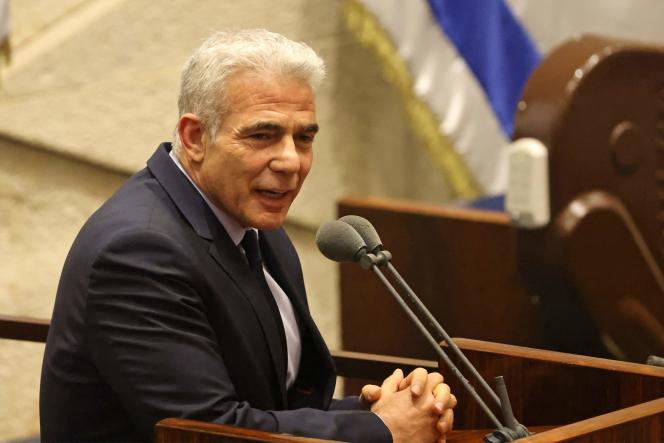Israeli elected officials voted early on Tuesday, June 28, in first reading, for a bill to dissolve the Knesset (Israeli Parliament), a key step before calling new early legislative elections, the fifth in less than four years in Israel. Two dates are mentioned for the ballot: October 25 or November 1.
Shortly after midnight, a Knesset committee announced that it had completed its work and had “unanimously” passed the bill, which passed with the support of fifty-three lawmakers, with no opposition or abstentions. The 120 deputies must adopt this bill in three readings. However, the parliamentary committee, which brings together members of the opposition and the coalition still in power, reported on the night of Monday to Tuesday an agreement to complete these three votes by Wednesday 11:59 p.m. .
Under a power-sharing agreement between Bennett and current Foreign Minister Yair Lapid, the latter will serve as prime minister after parliament dissolves until the next government is formed.
Coalition
MM. Bennett and Lapid had assembled, in June 2021, a coalition unique in the history of Israel comprising parties of the right, center, left and, for the first time, an Arab formation, in order to put an end to twelve years without interrupting the reign of Binyamin Netanyahu at the head of the government.
But the coalition has suffered several setbacks in recent weeks and, to further weaken it, the opposition snubbed it on June 6 by winning a majority against proposed legislation to extend the law’s application. to the 475,000 Israeli settlers living in the West Bank. This law had to be renewed by June 30 or else settlers in the West Bank (a Palestinian territory occupied since 1967) risked losing their legal protection under Israeli law. In the event of the dissolution of Parliament, this legislation is automatically extended.

















